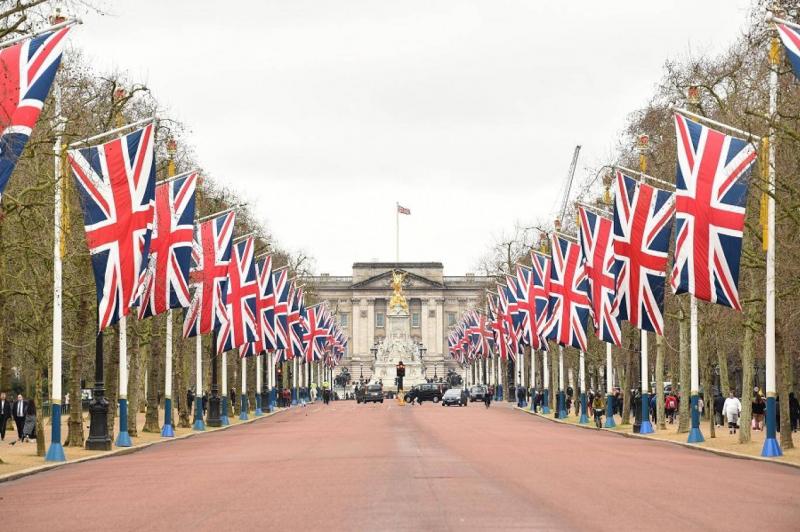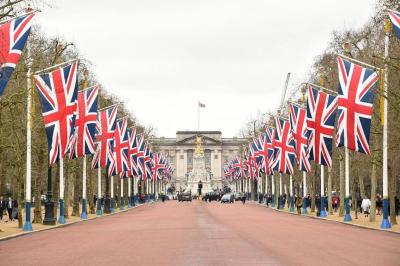A few days ago, Britain bid farewell to the "era" of Boris Johnson, following his necessity to resign from a government that had lost ministers and support at an unprecedented rate in British history. As expected, the fall came "from within," after the party's support dwindled both at the local organizational level and among its leadership in the House of Commons and Cabinet seats. Notably, the level of ministerial revolt was evident when two prominent ministers delivered the first blows to Johnson's shaky leadership after a recent vote of confidence showed that more than 40 percent of the party's MPs did not trust him. Naturally, with the Conservatives losing two seats in by-elections, it became clear that a series of scandals and clumsy behaviors by the Prime Minister over the past few months, which nearly led to accusations of "misleading Parliament," had initiated the "countdown" to his tenure in office.
However, while the "collapse" was expected, the rapidity of it and Johnson's initial defiant response were surprising. The resignations of Chancellor of the Exchequer Rishi Sunak and Health Minister Sajid Javid broke the silence, followed by a cascade of ministerial resignations across various levels, exceeding 60... culminating with Johnson himself dismissing his rival colleague Michael Gove. Ultimately, the matter was settled in a meeting between the "cornered" Prime Minister and Sir Graham Brady, Chairman of the "1922 Committee," which represents the entire parliamentary bloc of the party excluding ministers and their aides. During this meeting, the messages from party grassroots across the country were clear: the game was over, and there were no alternatives to resignation.
Once Johnson resigned, the competition for his succession in party leadership, and consequently the Premiership, began, since the party held a parliamentary majority and there was no demand for dissolving the House of Commons. Indeed, candidacies began to pour in against a backdrop that observant watchers could no longer overlook, no matter how much they tried to distance themselves from the sectarian fabric and socio-economic structure of Britain in general, and the Conservative Party in particular. Fifty years ago, it would have been unthinkable for three children of immigrants from the Indian subcontinent—Rishi Sunak (Hindu), Sajid Javid (Muslim), and Suella Braverman (Buddhist)—to be at the forefront of candidates vying for the leadership of the Conservative Party... and it is possible that others may join the mix, adding to its diversity.
From the sectarian (ethnic-religious) perspective, the socio-economic relationship in Britain has undergone a radical transformation that began nearly 100 years ago, peaking during Margaret Thatcher's era. The Thatcher period (1979-1990) was marked by two significant signs:
1. The end of the traditional economic model, with the decline of conventional industries, the subjugation of labor unions, and the rise of a generation of right-wing "self-made" individuals, at the expense of traditional class elites, especially from the old rural aristocracy.
2. The adaptation of the second and third generations of immigrants, many of whom ideologically shifted from the Labour Party—the natural refuge for minorities and the working class—to the Conservative Party, in light of their improved educational, social, and occupational status in the fields of the "new economy" (banking, commerce, accounting, and financial services). Gradually, the safety net provided by the leftist Labour Party for their communities ceased to meet the ambitions and dreams of their children.
Thus, by the end of the Thatcher period, the influence of the moderate traditional elites of the countryside diminished against the rise of a tough, emotionally detached, money-hungry youth generation, which lacked sympathy for the poor. This generation was behind the "Thatcherite" phenomenon, finding its strongest intellectual and strategic ally in the then-President of the United States, Ronald Reagan, and his hardline Republicans... not only against the Soviet Union and global leftism but also against European rapprochement and integration. In reality, the roots of "Brexit," or withdrawal from Europe, can be traced back in Britain to an intersection of interests between the extreme right of the Conservative Party and the isolationist left within the Labour Party.
This intersection is no longer strange today in various cases, including the United States and France. I still recall the reaction of American political analysts and media figures upon Donald Trump's announcement of his candidacy for the U.S. presidency in June 2015. At that time, they did not take this step seriously, whether due to Trump's controversial personality, his capricious political loyalties, or his excessive populist proposals. Many analysts and observers imagined that the man was singing out of tune; however, the initial dismissal soon turned into surprise... and then into a realization that something was changing. Indeed, by March 2016, Donald Trump was leading the pack of Republican candidates in opinion polls, supported by extremist white religious and social right-wing factions.
At that point, they recognized that a populist trend was emerging in both the Republican and Democratic parties, increasingly disillusioned with the traditional rules of the game. Just as Trump and his far-right faction began to impose their presence in the Republican race... a significant group of leftist Democrats wagered on the candidacy of the left-leaning—indeed, effectively independent—Senator Bernie Sanders against the establishment party candidate Hillary Clinton. Without needing to delve deeply into the developments of Trump's four-year presidency, we witnessed not only the dominance of his populist right over the key aspects of the Republican Party but also a transformation in the Republican street's view of matters that were once foundational to American political culture, such as electoral democracy, the peaceful transfer of power, the separation of powers keeping the judiciary insulated from political whims, respecting at least a minimum of personal and political freedoms, and the consensus on national security in the face of external threats.
Trump's presidency, which ended with an attack on the seat of the American democracy—the Capitol—and the conversion of the Supreme Court into a conservative ideological fortress, along with the dominance of anti-immigrant advocates in the party, may not have entirely ended but could return with new faces and tactics. Two of the three most populous U.S. states, Texas and Florida (the largest being California), are ruled by the far-right Republicans who are anti-immigration... despite the predominance of Hispanic Latinos in their population structure.
As with Britain's "Asians" and its increasingly significant "Africans" in the conservative right camp, the loyalty of the second and third generations of Hispanics to the Republican right is on the rise, at least in crucial electoral states like Texas and Florida.




